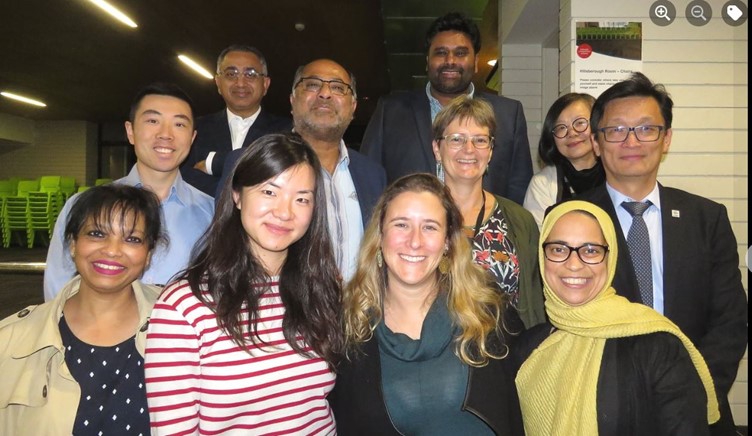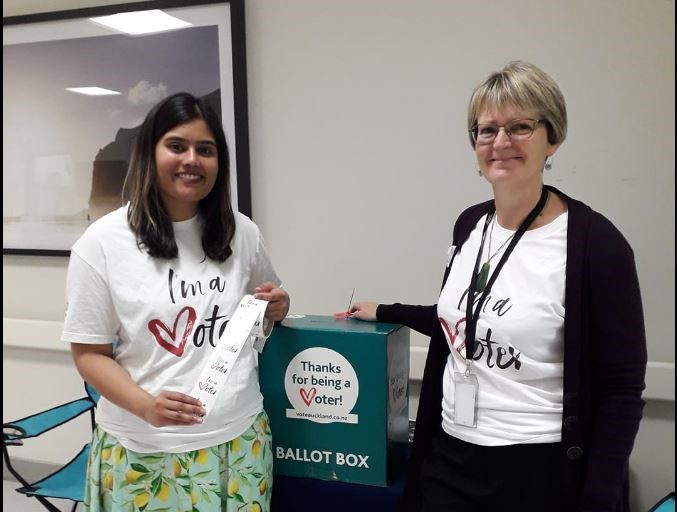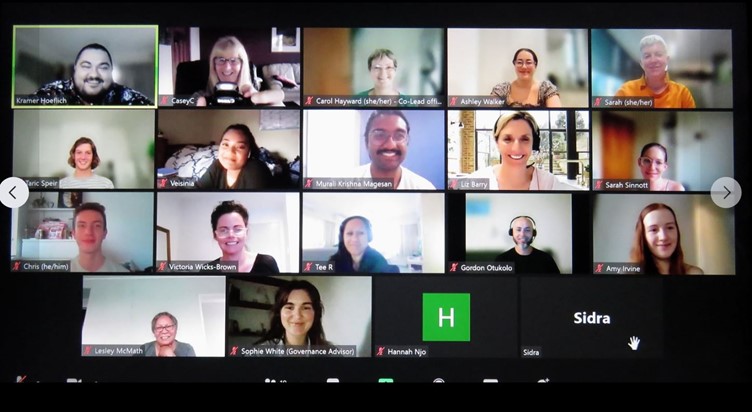Meet our Fellows
Carol Hayward
Tell us a bit about your journey as an engagement professional and how you got involved with IAP2.
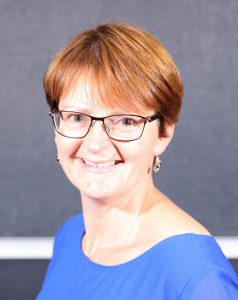
Carol Hayward
My first job in a community engagement role was as a project manager for local e-democracy in the UK. I was working at Bristol City Council and had spent the previous few years working in comms roles but didn’t feel they were quite the right fit. The project manager role came about as the council was involved with a central government funded programme of work to see if digital engagement tools could help to increase interest in local government and end up with increased voter turnout. It was a really interesting role as I got to experiment with a range of activities to see what worked and it felt a good fit for my background in comms and web design as well as my statistical and analytical skills.
One of the partners we worked with during this period was an American organisation called e-democracy.org and I was lucky enough to be invited to Minneapolis to a forum on deepening deliberative democracy. One of the people I met there introduced me to IAP2 as a global network and organisation. However, in the UK, the organisation hadn’t really taken off so I didn’t come across them again until I moved to New Zealand in 2008 when I was pleased to join the network and use it as a way of finding like-minded people.
At the time, Roger Tweedy was the New Zealand co-ordinator and he put me in touch with Ben Parsons who was leading activities for the Auckland network which I then got involved with. There were a small number of engagement professionals in Auckland at the time and I really enjoyed getting involved and hearing about the New Zealand practise of community engagement.
I participated in a small working group helping to shape content for local events over the next couple of years before putting my name forward to be the NZ regional co-ordinator in 2011. I was then elected to the board in 2013 where I ended up being chair of the membership committee and a member of the training committee.
I wasn’t re-elected in 2015 but was invited to become an ambassador in 2016 and participated in a range of other activities in the few years after that – a core values awards judge, speaker at a Local Government New Zealand conference and at the first young professionals network event in Auckland. I remained involved with the organisation of the New Zealand symposium for some years.
What do you see as the most challenging part of your role or working in engagement in general?
I was really surprised when I first moved to New Zealand at the lack of digital engagement and the constraints in relation to how consultation and engagement was carried out. The Local Government Act seemed very prescriptive. In the UK, the only statutory consultation was the council’s annual budget and that was the hardest consultation to get people involved with. In New Zealand, it felt like the legislation encouraged a tick box mentality which didn’t lead to good outcomes.
During my first couple of years in NZ, I worked with the Association of Local Government Information Managers to develop a white paper on digital engagement to help showcase some of the innovative activities that were being used in NZ plus looked for opportunities to share my experiences in the UK.
I spent a lot of time drawing from my UK experience to identify opportunities for innovation – setting up online community panels, increasing the use of social media and online survey tools as well as looking for informal engagement opportunities to boost community participation in council decision making processes.
What was the most memorable engagement project you’ve worked on?
Its hard to pick one but as there’s been a lot of discussion in New Zealand about deliberative democracy I’ll go with a Citizens jury on ‘What next for waste?’. This was an exhausting but rewarding process to gain community insights into what Bristol City Council could do next to meet its obligations under government legislation to minimise waste. We selected 25 people to sit on a 3.5-day jury and hear from a range of experts so that they could make recommendations to the council.
The topic was quite a political hot potato at that point in time and some of the issues being discussed by the council were not palatable to some members of the community. However, the recommendations helped give the council the courage to make some tough decisions based on the jury’s views so it was a pretty powerful exercise.
If you hadn’t worked in engagement, what would you have done instead?
My first career was as a statistician but I found quite quickly that while I enjoyed the analysis, I needed greater connection with people. It took me a few years to find my way into engagement but I tried a few other things out along the way: teaching, events, communications, website design. Engagement seemed like a perfect role to use all these different skills and experiences.
What are the top 3 skills do you think a good engager should possess?
- Good communication skills and empathy
- Programme management – being able to pull together a team and keep everyone on track
- Resilience – good engagement takes energy and it’s common to suffer knock backs or bad days
Who’s the most important role model or mentor you’ve had?
In my early days in New Zealand I was lucky enough to connect with Vivian Twyford and Anne Pattillo. I have always really appreciated their wisdom, guidance and experience at both a personal and a professional level. I remember discussions in the early days of Auckland Council’s formation where we were trying to establish a centre of excellence for engagement. Unfortunately, it didn’t resonate with the organisation’s leadership then so took a few years before the principles were able to be embedded but those early discussions, training and support were fundamental to changing the way engagement is now carried out.
Where do you hope to see the engagement practice in future years?
I’m hoping to see a range of clearly defined community engagement roles and specialities over the coming years and a corresponding greater understanding of the role. Over the last few years it’s been heartening to see the greater emphasis on targeting engagement to reach our more diverse communities and it’s good to see the demographics of community engagement professionals evolving to reflect those communities better. Things have changed so much since I first came to New Zealand but there’s still a long way to go!
How do you achieve connection with your community, colleagues, clients and/or stakeholders?
I’ve always sought help and advice from my friends and colleagues. I won’t always know the best way to connect so it’s important to learn from them to build trust and relationships. For example, when I worked within health, I worked closely with my colleagues in the Māori health, Pacific health as well as community partners to support engagement. While they might help to initiate the connection, I found one of the most important ways of maintaining that connection was good communications – providing regular updates and closing the loop so that they feel like they’ve been heard and that something has happened as a result of their participation.
What’s next for you?
I am still working that out. I completed my MBA just before Covid-19 hit the world and always intended to take some time out to map out my next steps. However, with the last couple of years of uncertainty, it’s not really felt like the right time. So, while I am still passionate about democratic and community engagement I am enjoying my current team leadership role and working out how best to support the council’s shared governance structure.
I have always enjoyed working with youth so was pleased to remain involved with the council’s Youth Advisory Panel as co-lead officer when I changed roles last year. Unfortunately a lot of our meetings have had to take place online during the term but this was a really good discussion in early 2022 about youth employment to identify what else the council could do to reduce barriers to employment and create opportunities.




